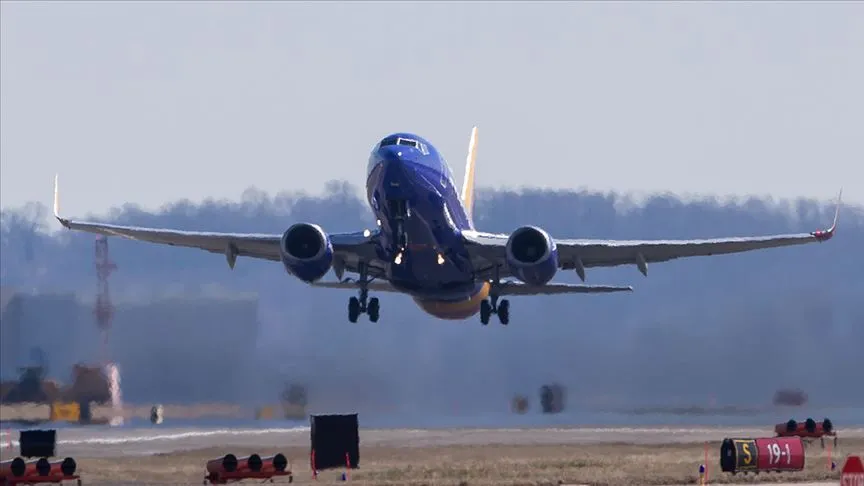Turkey and the EU are continuing talks on the Schengen visa issue, which has become one of the problems in bilateral relations. The latest meeting on this issue took place in Ankara between Foreign Minister Hakan Fidan and EU Commissioner for Neighborhood and Enlargement Oliver Varhelyi. The stalemate over visa liberalization and the failure to effectively implement the visa facilitation process show that the problem is difficult to solve.
According to 2023 statistics released by the EU Commissioner for Migration and Home Affairs, China and Turkey were the top two countries requesting Schengen visas with one million applications each.
In proportion to population, Turkey is by far the country with the highest number of Schengen applicants. The fact that the number of applications has increased by 30 percent in just one year, from around 700,000 in 2022, is a concrete statistic that shows how much interest in the EU from Turkey has increased.
The same statistics show that 16.1 percent of visa applications from Turkey were rejected. This figure is in line with the EU’s overall rejection rate for third-country nationals.
However, the main source of the problem is the long appointment times for Turkish citizens and the issuance of short-term, single-entry visas.
Applications from Turkey are mostly for countries such as Germany, Spain and Italy, and Turkish citizens wait for months for an appointment.
This was the most common complaint that EU Commissioner for Neighborhood and Enlargement Oliver Varhelyi, who was in Ankara yesterday, heard from his Turkish interlocutors.
Varhelyi held talks with Vice President Cevdet Yılmaz, Foreign Minister Fidan, Trade Minister Ömer Bolat, Interior Minister Ali Yerlikaya and Finance Minister Mehmet Şimşek.
Resumption of work on visa liberalization?
At yesterday’s press conference, Foreign Minister Fidan emphasized that the solution to the problem is being worked on in two phases under the headings of “visa facilitation” and “visa liberalization” and noted that work with the EU and member states continues.
Visa liberalization, which includes visa-free travel of Turkish citizens to the Schengen area, is a process that has been on the agenda since 2013 but has not been completed due to the Turkish government’s failure to fulfill the last 6 of the 72 criteria required.
The most important of these 6 criteria is the amendment to the anti-terrorism law (TMY). The EU says that Turkey’s definition of terrorism is broad and vague and therefore needs to be revised in line with EU standards.
After the coup attempt in July 2016, Turkey stated that it could not amend the Anti-Terror Law under the current circumstances and asked Brussels for flexibility, but did not get the response it wanted.
Will the ‘anti-terror’ law be changed?
In his statement yesterday, Foreign Minister Fidan emphasized that Turkey’s aim is to complete the arrangements regarding the remaining criteria for visa liberalization and to fully start negotiations with the EU on this issue.
According to the BBC, in addition to the Anti-Terror Law, Turkey needs to harmonize the Law on the Protection of Personal Data and its institution with EU standards, establish judicial cooperation with all member states including the Republic of Cyprus, sign an operational cooperation agreement with EUROPOL and implement the recommendations of the Council of Europe’s GRECO (Group of Countries against Corruption).
Turkish diplomatic sources say that the remaining criteria can be met in a very short time if the government demonstrates the political will to do so. In addition to meeting the criteria, Turkey will also need to implement the Return Agreement with the EU. This agreement would open the door for Turkey to accept migrants who illegally travel to the EU via Turkey.
Even if negotiations with the Commission are completed, visa liberalization will require the approval of the 27-nation European Council and then the European Parliament.
What is the situation with visa facilitation?
The visa facilitation, which has been discussed for the solution of the problem, came to the agenda at the beginning of 2023 to alleviate the visa problem that has been growing in the last two years.
The visa facilitation solution includes faster visa issuance for certain groups such as students, business people, artists and academics, and the visa to be provided should be long-term and multiple-entry. However, the desired implementation has not been realized.
One of the most important reasons for this is that even if the visa facilitation process is negotiated with the EU Commission, the implementation is entirely in the hands of the sovereign member states. It is noted that the Commission does not have much influence on this issue other than advising the member states.
In fact, Trade Minister Ömer Bolat said after his meeting with Varhelyi, “(Varhelyi) stated that as the EU Commission, they (Varhelyi) carried out a coordination work and made a positive recommendation to the member states and their foreign affairs in terms of visa applications and multiple-entry and long-term visas for citizens of the Republic of Turkey.” Bolat also noted that Varhelyi advised member states to increase the capacity of their consulates.
Increasing asylum requests
Diplomatic sources in Ankara say that the main reason behind the visa problem is the unexpectedly high number of applications from Turkey in the wake of the pandemic. They point out that there is a lack of human resources and capacity to respond to over 1 million applications per year, and that the application dossiers have started to include a large number of inaccurate information and documents, which has prolonged the processing time of applications.
In addition, the same sources note that the fact that the number of Turkish citizens seeking asylum in the EU exceeded 100,000 in 2023 has resulted in a more rigorous examination of applications.

















